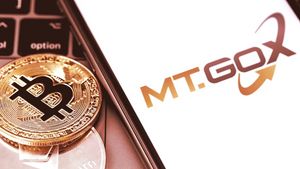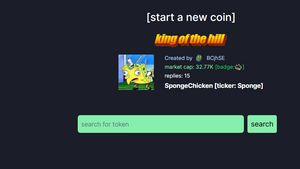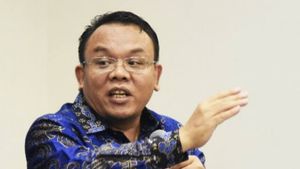JAKARTA - In the midst of the uproar over the 2024 United States presidential election campaign, the name Polymarket is starting to stick out. This decentralized prediction platform attracted the attention of the media because of its accuracy in predicting election results compared to traditional surveys.
Then, what exactly is Polymarket and how does it work? This article will thoroughly explore the Polymarket and the decentralized prediction market, opening up new opportunities in future speculation.
Understanding The Prediction Market
The prediction market, which has existed since the 16th century, allows its users to speculate and bet on various events to come. Users can bet on the results of sporting matches, general elections, legal cases, and various other events that have clear and provable results.
The consensus is simple: if your predictions are correct, you get a profit. If wrong, you lose the money at stake. The underlying mechanism is easy to understand. The price of one "share" in the prediction market ranges from US$0.00 to US$1.00, and this price reflects the percentage of chances of winning, or "odds".
For example, if the share price of one candidate in the election is 63 cents (around Rp1,008), meaning the candidate has a 63% chance of winning by market. If you want to bet on the election results, you will buy shares from candidates you believe will win. When the election results come out, the market will close, and the share price of the winning candidate will be 1.00 US dollars per share.
SEE ALSO:
Types Of Market Types Prediction
There are several types of prediction markets that include:
When participating in the prediction market, you can sell your shares at any time. There is no period of lockdown, and you don't have to wait until the event is predicted to end. For example, if you are confident that one candidate will excel in the upcoming debate, you can buy the candidate token, hope the price goes up after the debate, and sell it after the debate is over.
How The Decentralized Prediction Market Works
Polymarkets are a decentralized prediction market built on the Ethereum and Polygon blockchain networks. On Polymarkets and similar platforms like Augur and Gnosis, anyone can create a market. Users can create a market for various events, such as whether Decrypt sites will get more traffic this month than last month, or which coin meme celebrities will reach their highest market cap by the end of 2024.
Decentralized prediction markets use Automated Market Makers (AMM) to provide liquidity for the market. Anyone can provide liquidity for any market, in contrast to a centralized prediction market where only centralized market creators are responsible for providing all liquidity. Decentralized prediction market supporters emphasize that because they can receive liquidity from anywhere, they tend to have greater liquidity than alternatives.
The decentralized prediction market uses incentives to attract liquidity. People who provide liquidity for the market get a percentage of each trade in that market.
The completion of the results, or the verification process, that the prediction market has been completed with certain results, is slightly different on each platform. For example, on Augur, the designated individual is responsible for delivering evidence of market results. This evidence can be challenged if the public believes that the result is inaccurate.
With the development of blockchain technology, decentralized prediction markets like Polymarkets continue to offer new and innovative ways to speculate on future events, with greater liquidity and higher transparency than traditional prediction markets.
Polymarkets and other decentralized prediction markets present exciting opportunities for speculators and investors to predict various events in a more decentralized and transparent manner. Blockchain technology offers innovative solutions to increase liquidity, accuracy, and efficiency of the prediction market, opening up
The English, Chinese, Japanese, Arabic, and French versions are automatically generated by the AI. So there may still be inaccuracies in translating, please always see Indonesian as our main language. (system supported by DigitalSiber.id)
















